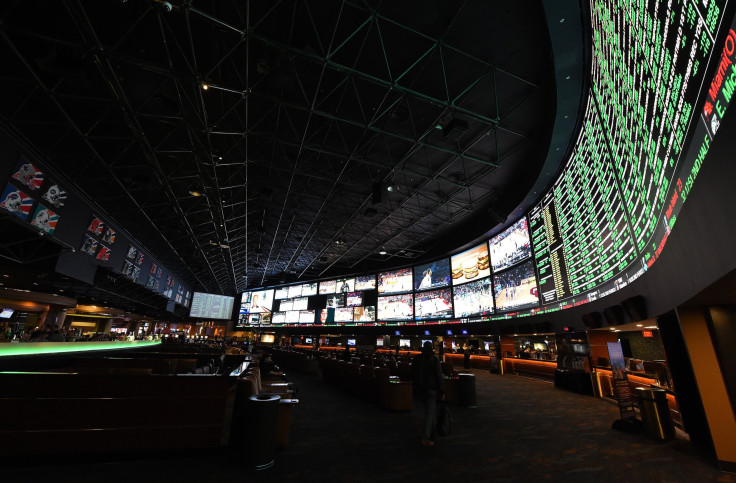Sports Gambling News: Nevada Sets Wager Record In January

Nevada sportsbooks had a solid start to 2016, setting a record for the most wagers taken on sports betting in any January, according to Legal Sports Report. But despite taking in more money, sportsbooks won at a lower rate than last January.
According to sports gambling information website Covers, Nevada sportsbooks handled more than $448 million in wagers in January. The books' win amount, however, fell more than 3 percent from last January, with the total figure won coming in at about $19.6 million.
According to Gaming Control, $448.2 million wagered on sports in January is a Nevada record for that month, producing win of $19.63 million.
— Jason Logan (@CoversJLo) February 26, 2016
While the sportsbooks made less money than last January, the uptick in wagering is significant. Revenue from all forms of gaming statewide in Nevada fell 2.87 percent compared with 2015. Vegas did especially well in the NFL playoffs and NCAA/NBA basketball in January, winning $8.2 million and $10.2 million, respectively.
The current month could prove lucrative for Nevada sportsbooks as well, since the books took a record amount of wagers for February's Super Bowl and won $13.3 million.
Nevada's record wager amounts come amid a continued fight from New Jersey to legalize sports gambling, which had an important appeal hearing last week at the 3rd U.S. Circuit Court of Appeals in Philadelphia. New Jersey could be fighting a losing battle, but the national conversation surrounding gambling legalization/regulation has grown. Currently some form of sports wagering is legal in just four states — Nevada, Delaware, Montana and Oregon — that took advantage of a one-year window in 1992.
Nevada, the U.S.'s main hub for sports gambling, accepted a record $4.2 billion in wagers in 2015. Some $400 billion, however, is gambled on sports illegally, according to the New York Times. NBA Commissioner Adam Silver has supported legalizing sports gambling nationwide, which critics worry could encourage problem gamblers and create opportunities for game-fixing.
“Congress should adopt a federal framework that allows states to authorize betting on professional sports, subject to strict regulatory requirements and technological safeguards,” Silver wrote in an opinion essay for the New York Times.
© Copyright IBTimes 2024. All rights reserved.












